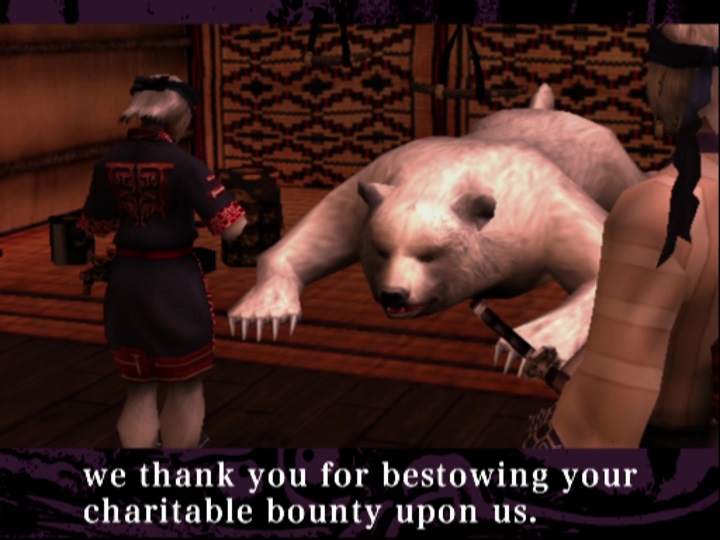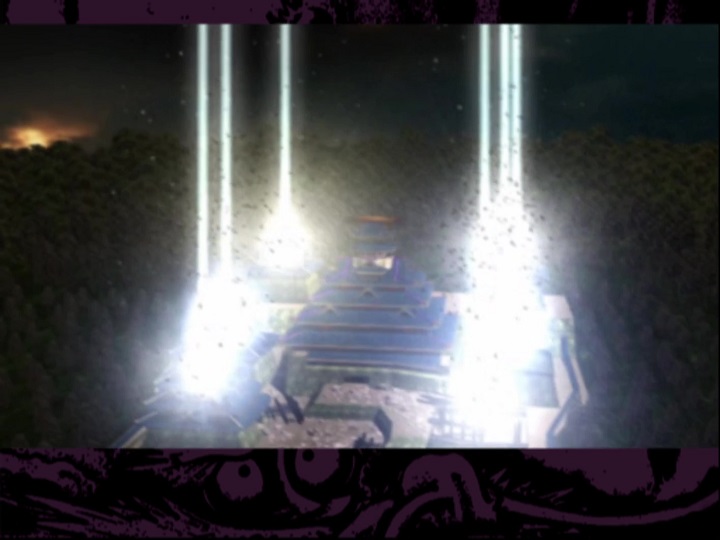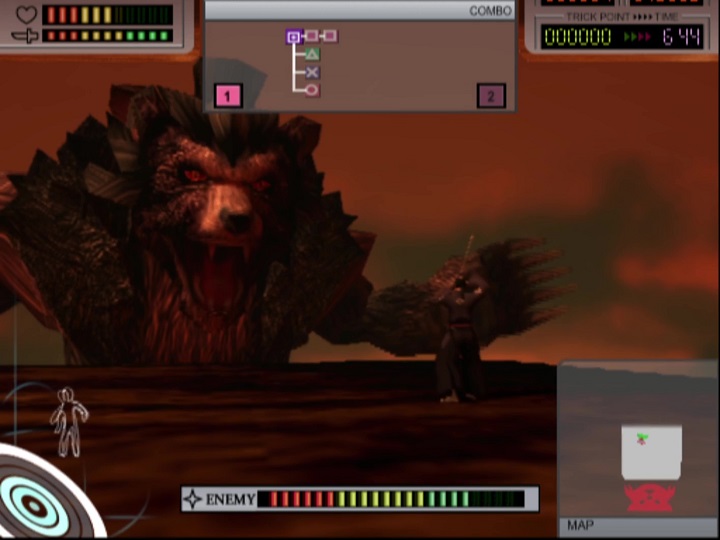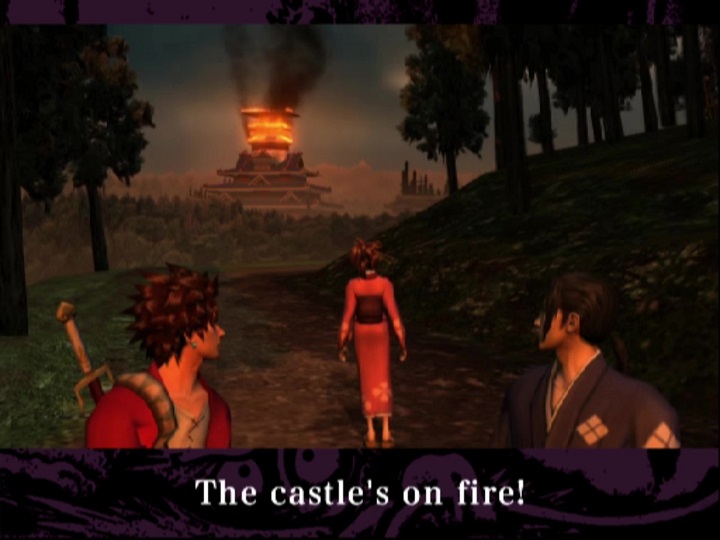
While I do not know if the ritual Sidetracked depicts resembles a real opunire, this chapter concludes with Worso killing a “bear god.” The carcass is put in a place of honor. Here Nochiyu tells it, “Kamui, we thank you for bestowing your charitable bounty upon us. We gratefully accept the bear god’s gift of this blood and flesh.” The player can then see the kamuy ascend from the body on a column of light. But this only prefigures Worso’s objective: to conduct a larger-scale ceremony, the “great opunire,” by uniting his gem with his sister’s gem in the presence of the three “saviors” after killing Antonioni, as per the prophecy. This seems to propitiate especially powerful kamuy. The Matsumae and Europeans misunderstand the spiritual nature of the ceremony, seeking to attain the gems because they believe the great opunire will bring them material wealth.
Therefore, in “A Fierce Battle,” Worso reappears to Jin and Mugen on the roof of Ezo Palace, reclaiming the former “old blood” stronghold from the invaders. He has just killed Antonioni, whom the player can later engage as the true final boss in the equivalent Worso chapter, “Dying in a Foreign Land: Nothing More, Nothing Less.” With the prophecy almost fulfilled, Worso brings the two magic gems together. This causes the magical destruction of the Matsumae palaces around Ezo Palace itself, which was originally Tsurumaki property, ritually cleansing the land.

Uminosuke abuses Uehara and the Sundance tribe out of bestial greed. Paralleling this, Antonioni’s great sin is that he wants to exploit the kamuy for material gain, to which end he steals Nochiyu’s gem. As Kamui destroys Uminosuke for his crimes, Worso kills Antonioni, and the kamuy destroy his fortresses.
The gems also summon two kamuy in the form of a giant bear and a giant robot bear. Adding to the absurd humor, these kaiju are called Higumadon and Mecha-Higumadon. “This is getting ridiculous,” says Jin. After the player defeats them, the two bear kaiju kamuy dissolve into light that flies into the sky. Worso declares, “The great opunire was performed successfully.” This tongue-in-cheek take on the opunire parodies the escalation of video game final bosses. I do not know if this would be considered offensive.

Worso addresses Jin, Mugen, and Fuu as “My three good kamui” and gives them a lavish meal as thanks in what begins as a happy ending. The indigenous people have won back their land. However, “Dying in a Foreign Land” seems to depict Worso subsequently torching the sacred palace and dying by self-immolation. Seeing the flames that recall the same fire that destroyed their estate, Rei and Nochiyu decide to leave Ezo, accepting their people cannot remain in their land after all.

***